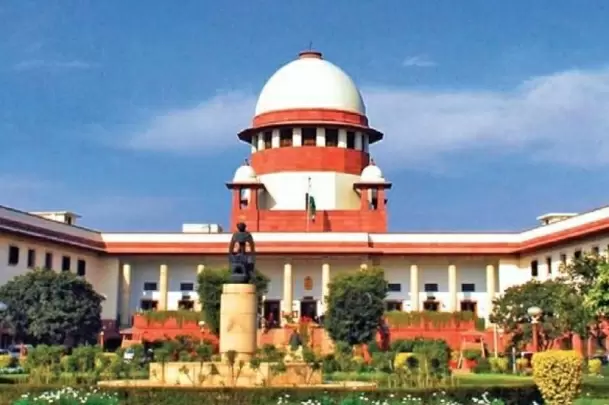Doctors can't be held liable for error of judgment in reasonable course of treatment: SC
New Delhi
20-April-2022

Photo: IANS
The Supreme Court on Wednesday observed that doctors can provide the best medical assistance available at their command but merely because they could not save the patient, that could not be considered to be a case of post-operative medical negligence.
The bench added that a medical practitioner is not to be held liable simply because things went wrong from mischance or misadventure or through an error of judgment in choosing one reasonable course of treatment in preference to another.
The bench dismissed an appeal filed by Dr Chanda Rani Akhouri and others challenging the National Consumer Disputes Redressal Commission order, rejecting their claim for damages to the tune of Rs 95.16 lakh against a nursing home and its doctors for post-operative negligence, resulting in the death of Akhouri's husband within months after kidney transplant in 1995.
"We realise the pain of losing her husband and the trauma she has suffered, but that cannot translate into a legal remedy," the bench said, holding that the term "negligence" has no defined boundaries and if any medical negligence is there, whether it is pre- or post-operative medical care or in follow-up care, at any point of time by the treating doctors or anyone else, it is always open to be considered by the courts/commission taking note of the exposition of law laid down.
The bench said: "In the practice of medicine, there could be varying approaches of treatment. There could be a genuine difference of opinion. However, while adopting a course of treatment, the duty cast upon the medical practitioner is that he must ensure that the medical protocol being followed by him is to the best of his skill and with competence at his command."
It noted that treating doctors in the case were experts in the field of nephrology, and all post-operative medical care protocol available at their command was administered to the patient.
Watch This TWL Video
It also said no evidence has come on record at the behest of the appellants which, in any manner, could demonstrate that it was a case of post-operative medical negligence or follow-up care on the part of treating doctors and both the doctors who have recorded their statements on behalf of the appellants, are not expert doctors in the field of kidney transplantation.
"Merely because they are doctors by profession, what is being expressed by both of them in the affidavits filed before the Commission would not be considered to be an opinion of experts," added the bench.
The bench said though the complaint of the patient which remained persistent could not be ruled out despite medically approved drugs being administered to him and if the patient could not be finally saved, that in itself could not be considered to be a case of post-operative medical negligence.
"All post operative medical care protocol available at the command of the respondents was administered to the patient, still his physical condition deteriorated and finally he could not be saved, which is really unfortunate, but there cannot be a legal recourse to what is being acceptable to the destiny." - IANS
More Headlines
Indian Startup Founder Salaries Drop 25% Amid Funding Winter
DMK to Launch Statewide Protests Against NEP’s Three-Language Formula
Air India Faces Backlash as Elderly Passenger Denied Wheelchair Falls, Lands in ICU
Shiv Nadar Transfers 47% Stake in HCL Promoter Firms to Daughter Roshni
Telangana Cabinet decides to develop Future City on 30,000 acre
Indian Startup Founder Salaries Drop 25% Amid Funding Winter
DMK to Launch Statewide Protests Against NEP’s Three-Language Formula
Air India Faces Backlash as Elderly Passenger Denied Wheelchair Falls, Lands in ICU
Shiv Nadar Transfers 47% Stake in HCL Promoter Firms to Daughter Roshni
Telangana Cabinet decides to develop Future City on 30,000 acre










